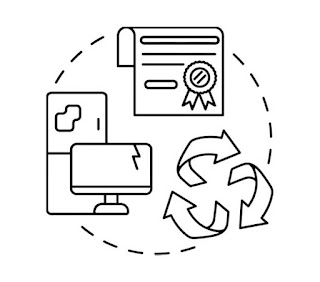The process to register, comply and obtain a Plastic Waste Extended Producer Responsibility (EPR) Certificate may vary depending on the country or region. However, here is a general outline of the steps that may be involved:
Research the regulations: Research the relevant laws and regulations related to Plastic Waste EPR in your country or region. This will help you understand the requirements for compliance and the process for obtaining a certificate.
Identify the applicable authority: Identity the appropriate government authority responsible for managing the Plastic Waste EPR scheme in your country or region. This authority may be responsible for issuing the EPR certificate.
Register your company: Register your company with the relevant authority or agency. You may need to provide details such as your company's name, address, contact information, and other relevant information.
Submit an application: Submit an application for the Plastic Waste EPR certificate. This application may require you to provide details about the types and quantities of plastic waste generated by your company, the measures taken to manage and recycle this waste, and other relevant information.
Provide evidence of compliance: Provide evidence that your company is complying with the relevant Plastic Waste EPR regulations. This may include documentation of your waste management and recycling practices, audits, and other relevant evidence.
Pay the fees: Pay any applicable fees associated with the registration and certification process.
Obtain the certificate: Once your application is approved, you will receive your Plastic Waste EPR certificate.
It is important to note that the process may vary depending on the specific requirements and regulations in your country or region. Therefore, it is recommended that you seek guidance from the relevant authority or a qualified consultant to ensure that you comply with all the necessary regulations and requirements.

Comments
Post a Comment